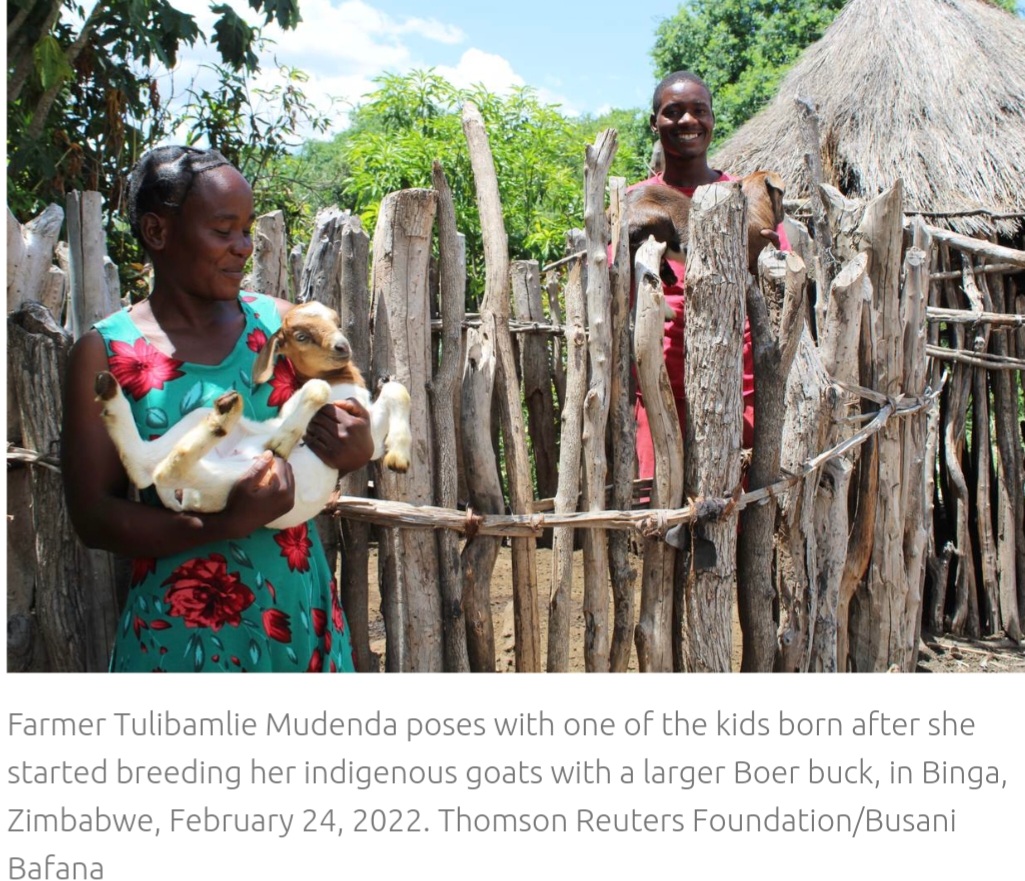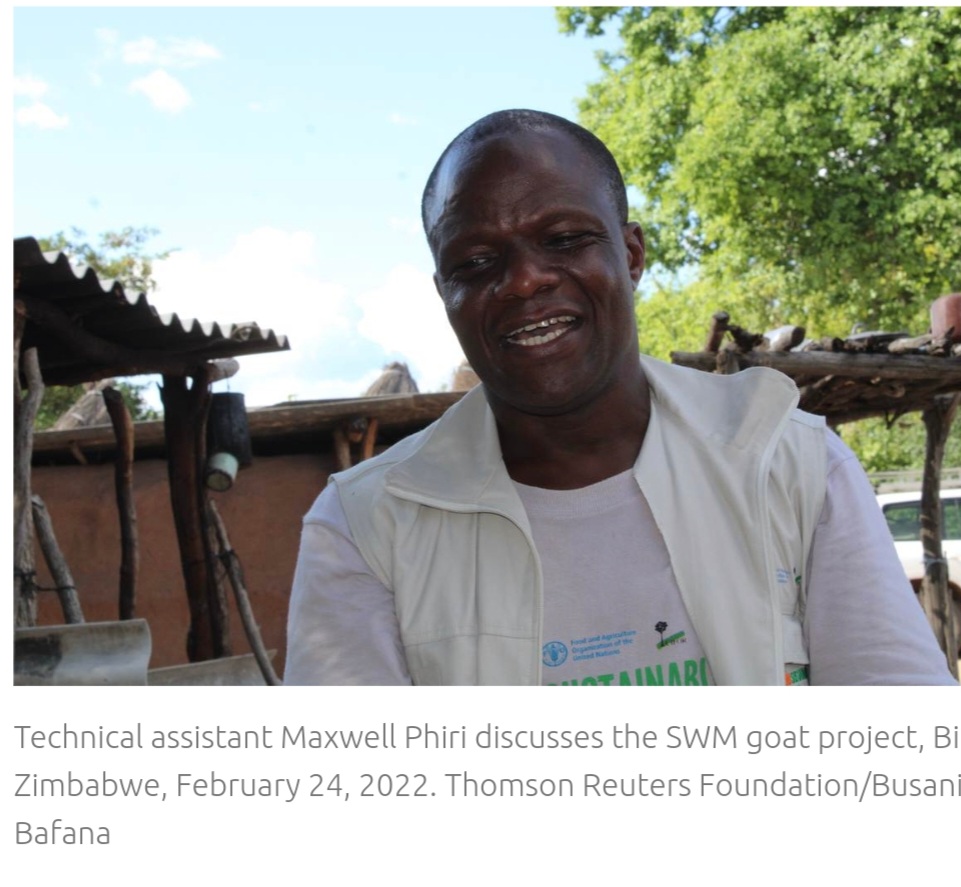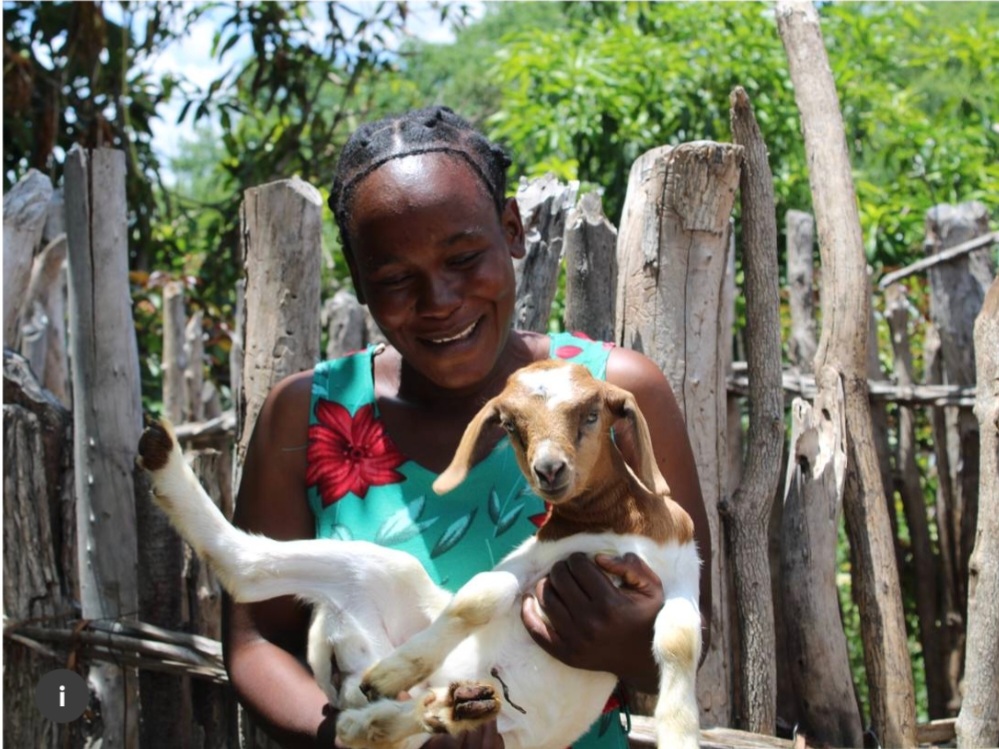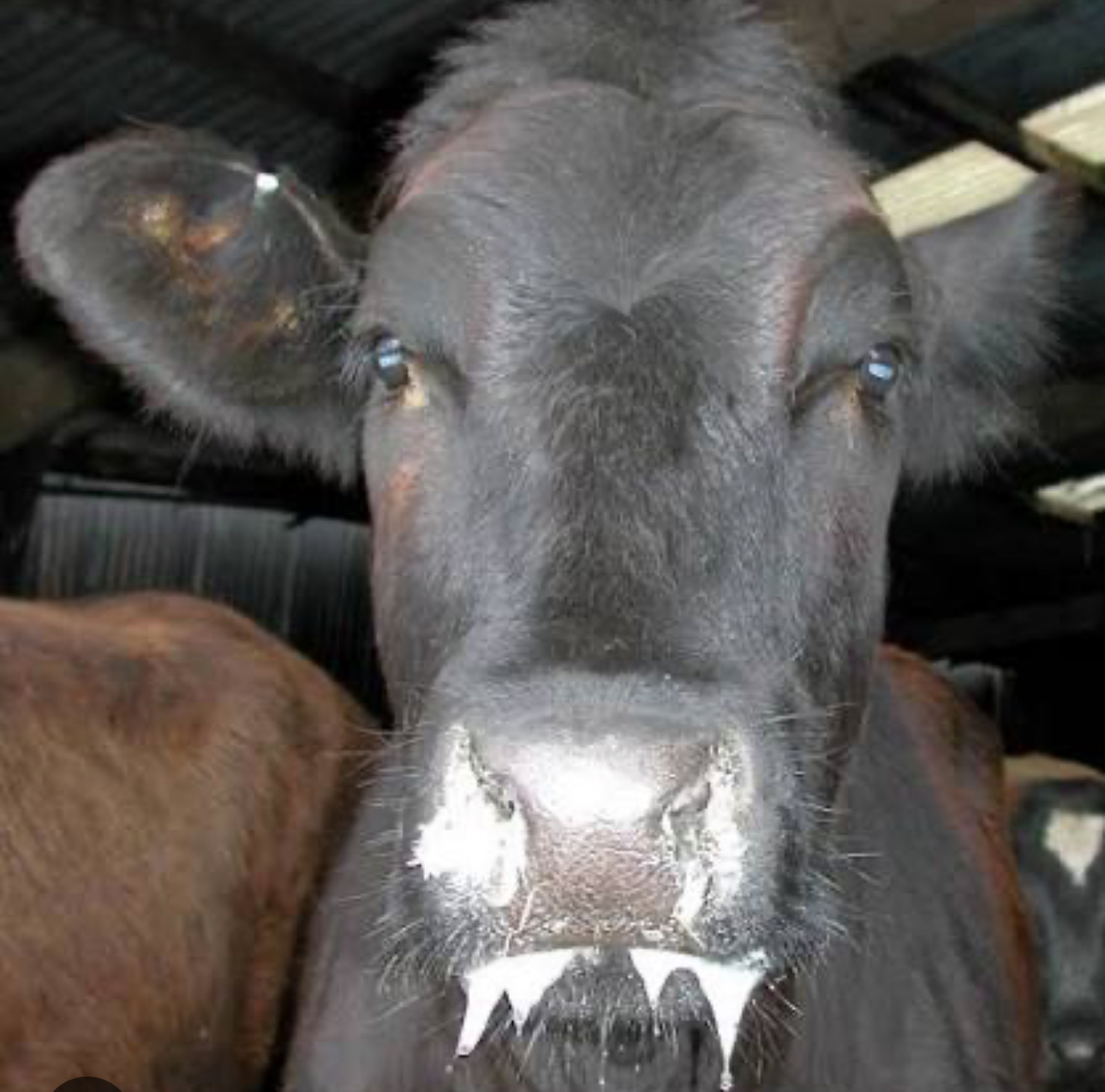BY BUSANI BAFANA
With worsening droughts in western Zimbabwe making it difficult to grow enough food, the farmers of the Tonga community have been relying on hunting impala, guinea fowl and other wild animals to eat and sell for income.
The farmers in Binga district know their traditional practice of “hunting for the pot” is decimating local protected wildlife and puts them at risk of being arrested for poaching, but they say they have little choice: hunt or go hungry.
“This year the rain was not good, crops did not survive in the heat, and we know food will be scarce,” said Levia Mugande from Chivwetu village.
But now she and dozens of other farmers are looking at a new way to get protein on their plates and money in their pockets: a larger breed of goat that fetches a higher price at market.
Last year, Mugande got her first Boer goat buck from the European Union-funded Sustainable Wildlife Management (SWM) Programme, through her farmers’ cooperative.
The plan, she said, is to breed the buck with indigenous female goats – or does – on her farm to produce bigger offspring with higher-quality meat, which can supplement what she makes from selling chickens and rosella, the fruit of the hibiscus plant, in Bulawayo, Zimbabwe’s second-largest city.
“I have indigenous goats that I sell twice a year to buy food and pay school fees and other needs at home,” she told the Thomson Reuters Foundation at a community meeting near her home
“But I am looking forward to earning more money from my goats,” she added, saying her native goats usually sell for up to $20 each depending on their size.
Their larger offspring, who could grow to weigh up to 150 kilogrammes, should fetch four times as much.
The goats are part of a balancing act playing out around the world as drought-hit communities with failing crops try to make sure everyone has enough to eat without wiping out the local wildlife that is essential to a healthy ecosystem.
At the same time, the degradation of habitats due to rising temperatures is driving more wildlife onto human settlements in search of food and water, leading farmers to kill the animals.
“There are complications in balancing food availability and conservation of wildlife … which poses a threat to the crops and livestock on which (people) depend,” said Maxwell Phiri, technical assistant for the SWM project in Zimbabwe.
Launched in 2018, it has given 30 farmers in Binga one buck each of the fast-growing Boer and Kalahari goat species to breed with their indigenous females.
So far, the does who bred with the first batch of bucks have all given birth to at least two kids, Phiri said.
Farmers get the bucks for free and the monthly cost of keeping each animal is about $10 for feed and medicine.

Less poaching
The farming sector employs more than 60% of Zimbabwe’s population, according to the United Nations’ Food and Agriculture Organization.
Binga, near the border with Zambia, has a history of insecure food supplies and incomes, in part due to waves of drought, high temperatures and erratic rainfall.
According to government data, Binga is one of Zimbabwe’s least-developed districts, ranking as the third poorest in Matabeleland North Province with a poverty rate of 88%, far above the national rural average of nearly 70 percent.
Now, with more lucrative goat breeds that could potentially bring in higher incomes for years to come, some farmers in the district have stopped relying on wildlife for their meat, said Tawanda Gonye, the district’s veterinary extension supervisor.
“The community is moving away from wildlife corridors and there is a decline in cases of farmers being arrested for poaching,” Gonye said.
Members of Natural Resource Monitors, a group of young community conservationists who act as environmental police, say they have recovered ten times fewer snares on their patrols since the project started.
“We think people realise the need to preserve wildlife, even when there is not enough food,” said Mathias Mugande, one of the monitors working in Binga’s Ward Five.
SWM programme coordinator Patrice Grimaud said the project stumbled early on, as farmers adjusted to raising the new goats, which originate in South Africa, based on training from the Department of Veterinary Services.
“Six out of the (first batch) of goats died, mainly due to a combination of eating poisonous plants they were not familiar with, pests, diseases … and poor nutrition,” he said.
Grimaud cautioned that it was too early to attribute the decline of poaching in the area solely to the goat swap.
He pointed to other strategies the SWM has introduced, such as providing farmers with portable livestock enclosures so they do not feel the need to kill wild animals to protect their goats.
The project is also encouraging farmers to look at alternative protein sources such as honey, mopane worms and tamarind, he said.
Climate adaptation

Annette Hubschle, a research fellow and expert on illegal wildlife economies at the University of Cape Town, said trying new foods was only a small step toward stopping people from hunting to ease hunger linked to climate change.
Conservation projects should also encourage communities to adapt their farming to the changing climate so they do not abandon agriculture entirely, she added.
“You cannot just bring in cattle or livestock – you have to provide the means of production,” said Hubschle.
“In the case of cattle farming, it would be kraals (enclosures), sheds and water points, while a crop farmer needs different things – access to water, equipment to soften the soil, seeds and compost.”
Mpendulo Mwiinde, a farmer from Binga’s Ward Four, said he and his peers have found it hard to give up hunting when they have so little food but are starting to understand why they should poach fewer animals.
“Wildlife is important as a future resource, even though some of the animals have destroyed our crops and threatened our livestock,” he added. – Thompson Reuters Foundation


 Slider3 years ago
Slider3 years ago
 National4 years ago
National4 years ago
 Tourism and Environment4 years ago
Tourism and Environment4 years ago
 Opinion4 years ago
Opinion4 years ago
 Special reports4 years ago
Special reports4 years ago
 National4 years ago
National4 years ago
 National3 years ago
National3 years ago
 National3 years ago
National3 years ago



